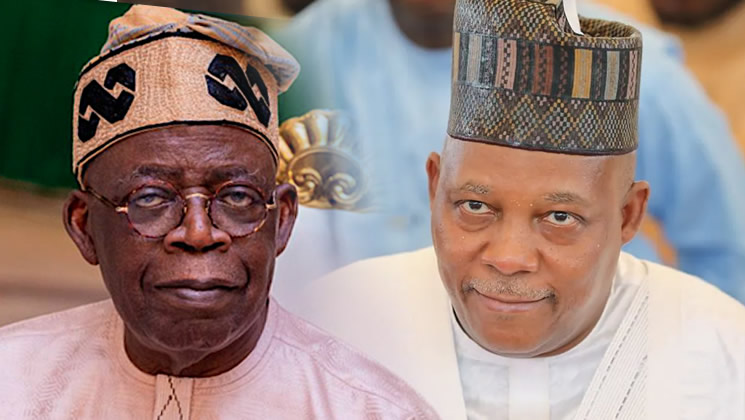The Socio-Economic Rights and Accountability Project (SERAP) has condemned the proposed N8.7 billion travel budget for President Bola Tinubu and Vice President Kashim Shettima for the year 2025, calling for a reduction in the budgets for both the Presidency and the National Assembly.
SERAP has urged Senate President Godswill Akpabio and House of Representatives Speaker Tajudeen Abbas to slash the allocations, which amount to N9.4 billion for the Presidency’s travel, meals, and catering expenses, as well as N344.85 billion for lawmakers.
In a letter dated 21st December 2024, signed by Deputy Director Kolawole Oluwadare, SERAP requested that the National Assembly ask President Tinubu to submit a new supplementary appropriation bill that reflects lower allocations for the Presidency and the legislature, in light of Nigeria’s current economic challenges.
The organisation warned that any unnecessary expenditure by both the Presidency and the National Assembly would violate the Nigerian Constitution (1999, as amended).
SERAP also stressed that it would be a serious breach of public trust for lawmakers to approve such lavish spending for themselves and the Presidency amid the country’s growing budget deficit.
“Any proposed unnecessary spending by the Presidency and the National Assembly would amount to a fundamental breach of the Nigerian Constitution,” the letter stated.
“It would be a grave violation of the public trust and constitutional oath of office for the members of the National Assembly to approve unnecessary spending for themselves and the Presidency.”
SERAP also demanded a detailed breakdown of the National Assembly’s proposed N344.85 billion budget, asking for clarity on personnel costs, salaries, and allowances. The group further urged lawmakers to summon heads of ministries, departments, and agencies (MDAs) identified in the 2021 audit report by the Office of the Auditor-General for the mismanagement of public funds.
The group criticised the proposed N8.7 billion allocated for the travel expenses of President Tinubu and Vice President Shettima, with the Office of the President requesting N7 billion for travel and transport, while the Vice President’s office allocated N1.73 billion.
The proposed budget also includes N546.2 million for catering materials and refreshments, N87.5 million for honoraria and sitting allowances, and N79.6 million for drugs and medical supplies.
Highlighting the increased expenditure, SERAP pointed out that the Presidency’s budget for “rehabilitation and repairs of fixed assets” had increased sharply from N14 billion in 2024 to N26 billion in 2025.
The group expressed concern that many Nigerians would find such spending “odd, unfair, and unjust,” particularly in the midst of a public borrowing crisis.
“Many Nigerians will find it quite odd, unfair, and unjust that the government and lawmakers are spending so much money on many of these items in the middle of a public borrowing crisis,” SERAP remarked.
The organisation reiterated the need for greater transparency in the National Assembly’s proposed budget and urged lawmakers to demand accountability from MDAs linked to the mismanagement of public funds.
SERAP stressed that holding these bodies accountable for the reported mismanagement of billions of naira would help tackle corruption within the public sector.
In its letter, SERAP reminded lawmakers of their constitutional responsibility to prioritise the welfare of citizens, emphasising that the National Assembly must ensure responsible spending of public funds.
“The proposed spending figures by both the Presidency and the National Assembly highlight the lack of political will to cut the cost of governance,” the group stated.
SERAP concluded by calling on Akpabio and Abbas to set an example by cutting unnecessary spending and acting in the best interest of Nigerians, arguing that reducing wasteful expenditures would help address the country’s budget deficit and mounting debt issues.
“Cutting waste and apparently unnecessary spending would go a long way in addressing the budget deficit and debt problems,” the organisation affirmed.



